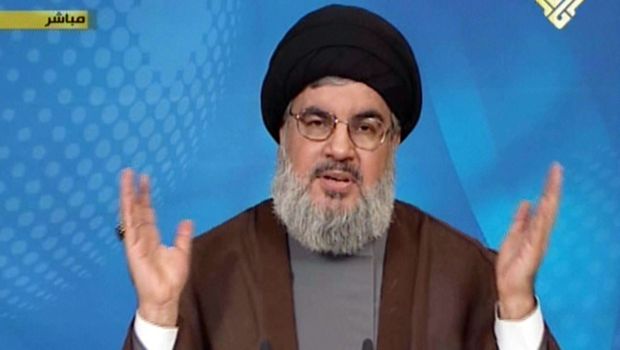At the start of the popular demonstrations in Syria more than two years ago, which soon shifted into a revolutionary struggle against the Assad regime, the attitude of Hezbollah, and of course Iran, appeared confused.
The state of confusion was because the Syrian public’s rage spoiled the propaganda of Iran’s Supreme Guide Ayatollah Ali Khamenei and his associate Hassan Nasrallah regarding what happened in Egypt, Tunisia, and Libya.
We all remember Ayatollah Khamenei’s speech, which he delivered in classical Arabic—a speech which I admit I thought was brilliantly delivered and full of zeal and ecstasy—which said that the toppling of Mubarak was an “Islamic revolution” along the lines of Khomeini’s revolution.
Khamenei’s words were repeated by his fellow Hassan Nasrallah in Lebanon until the moment when uprisings erupted in Deraa, and the mullahs and all those turbaned leaders, as well as their fellows in the media, were taken unawares.
How could you explain what happened in Syria against Bashar Al-Assad, a so-called member of the “resistance”?
There was much whispering and chatter about the importance of patience and dialogue in order for those behind the international imperialist to be denied the chance of toppling Bashar, alongside his officers and merchants, from Rami Makhlouf to Assef Shawkat. At the beginning, Iran and Hezbollah’s chatter was meant to reinforce their self-image, for they only passed superficial critical remarks of the Assad regime. Yet in time they placed all the blame on the “spasmodic” Syrian opposition.
Notice that, until that moment, there was no talk about Al-Qaeda in Syria.
Later on, however, Assad and Iranian propaganda found their long-desired objective in these organizations, and the Syrian scene was summed up in the fighters from the Al-Nura Front and the Islamic State of Iraq and Syria.
Those fighters became an excuse to brand the entire Syrian Cause as a devilish one. Then, we began to hear Nasrallah roaring and threatening, wagging his finger, adjusting his turban, and cursing the “liver eaters.” Here, Nasrallah’s rhetoric contained an unmistakable historic sectarian reference that stirred our memory. Who of us does not remember Hind Bin Utbah [who acted similarly by eating the liver of Hamza, the Prophet’s paternal uncle]?
Hassan Nasrallah introduced himself as a fierce enemy of Al-Qaeda only following the outbreak of fighting in Syria. Even when Abu-Musab Al-Zarqawi’s bloodshed in Iraq was at its peak, Nasrallah always acted as the kind adviser because Iran and Bashar Al-Assad were then taking a closer interest in expelling the US from Iraq—in order to allow Iran to swallow the country.
In the Palestinian refugee camp of Nahr Al-Bared, following the conflict between Lebanese forces and Fatah Al-Islam, Nasrallah adopted a very relaxed attitude, advising Hezbollah fighters not to get involved.
Has Nasrallah only now suddenly discover that Al-Qaeda is a takfirist organization?
